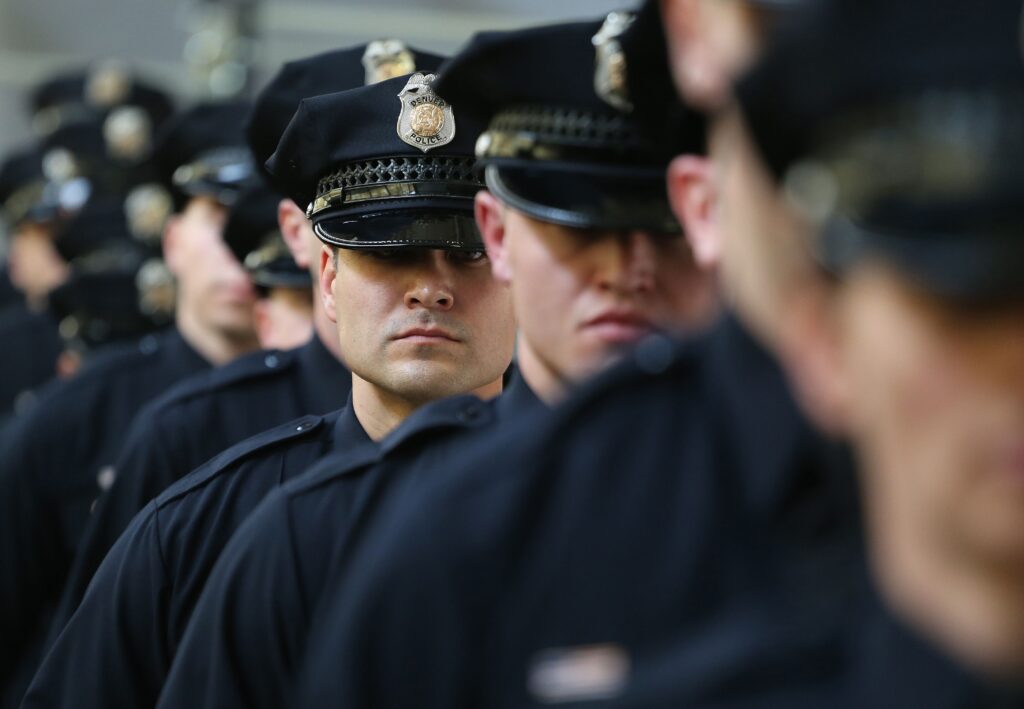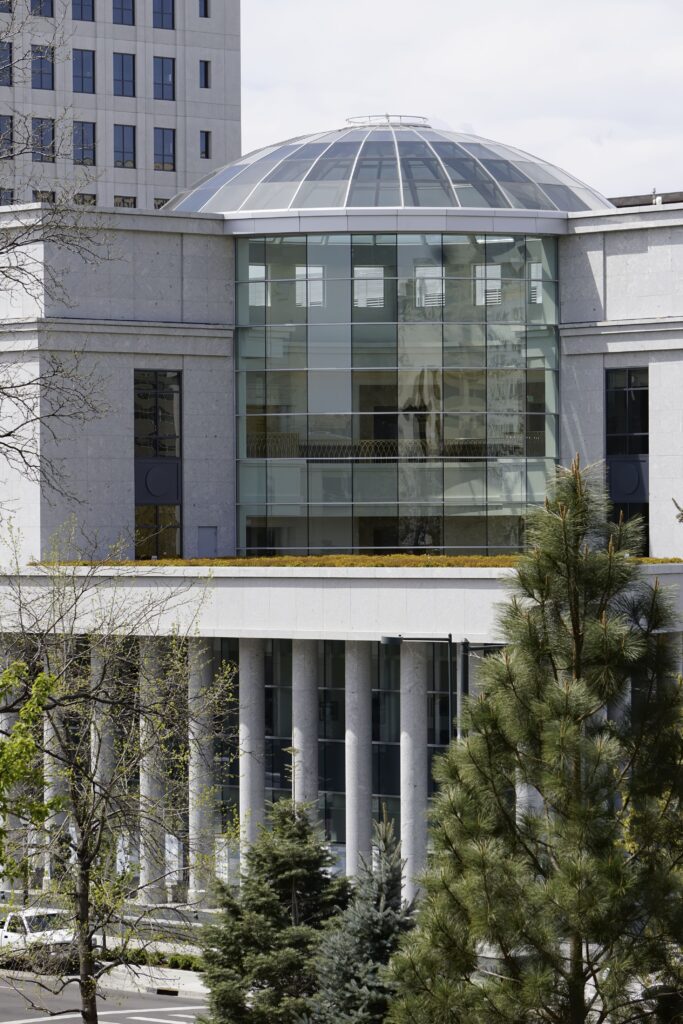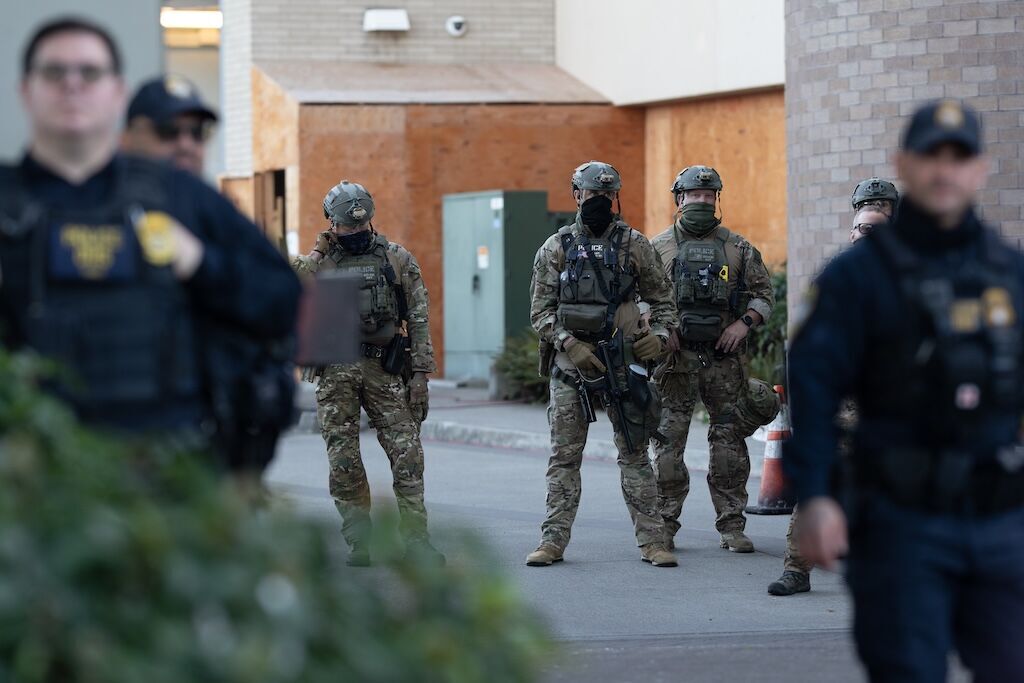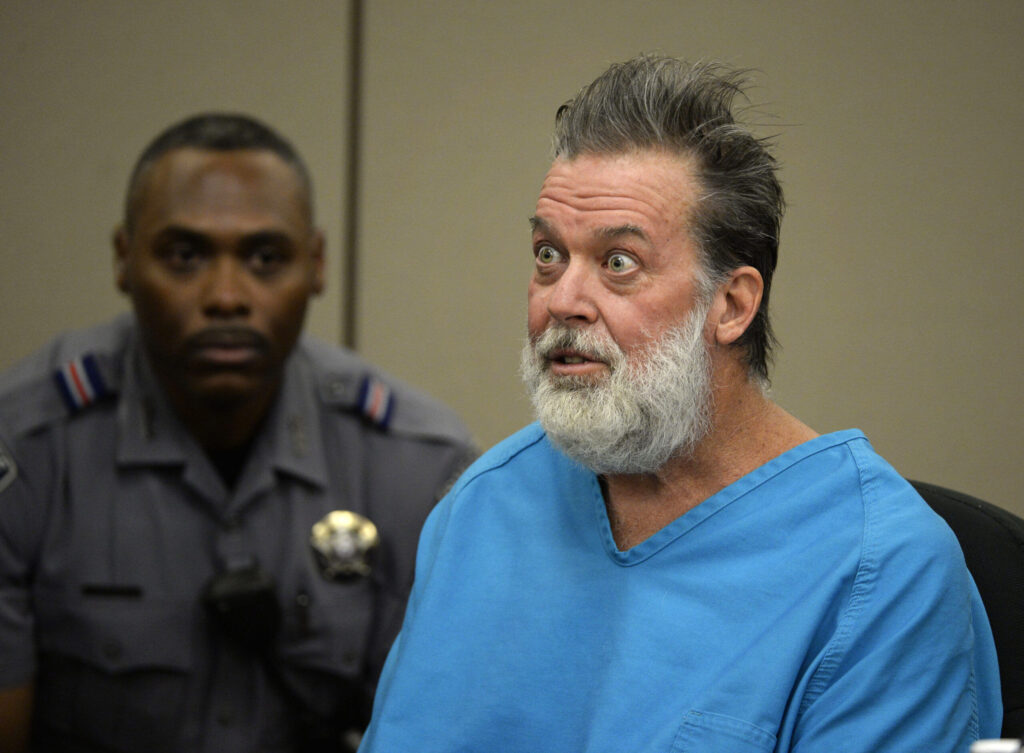State Supreme Court examines whether exclusion of wife from courtroom violated defendants’ rights
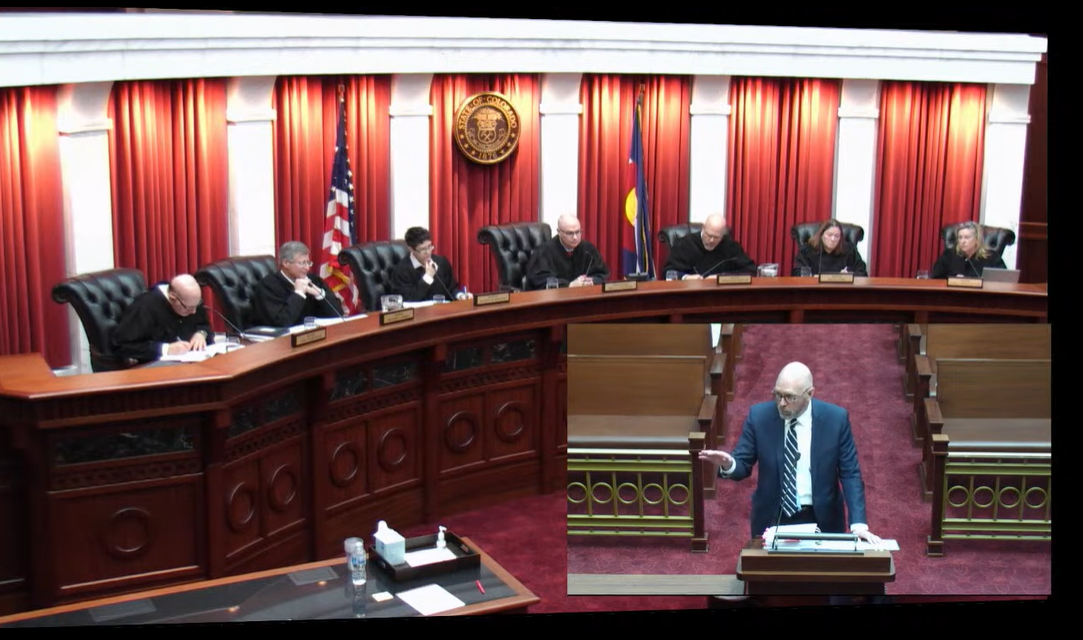
Christopher Nicholas Cruse and Terrel Shameek Turner stood trial together in Arapahoe County in 2017 for the robbery of a marijuana dispensary where Cruse worked.
On the third morning of the jury trial, the prosecution informed the trial judge that Cruse’s wife was arrested the prior day for “an encounter” in the hallway with one of the witnesses as well as a victim advocate.
“Mrs. Cruse is not going to be allowed legally in the courtroom,” the prosecutor told District Court Judge Ben L. Leutwyler, claiming there would be a mandatory protection order blocking Yolanda Cruse from having contact with the victim advocate.
After reviewing the arrest affidavit, Leutwyler agreed to bar her from the courtroom for the remainder of the trial.
“Based on what I’ve read,” the judge said, “Ms. Cruse has forfeited her right to be present in this trial because she has interfered with the orderly presentation of the evidence.”
Now, the Colorado Supreme Court is weighing whether Leutwyler’s decision to exclude Yolanda Cruse from the courtroom for three-and-a-half days of trial violated both Turner and Christopher Cruse’s Sixth Amendment right to a public trial.
The state’s second-highest court already decided both men should receive new trials because Leutwyler failed to follow the U.S. Supreme Court’s procedure when deciding to order a partial courtroom “closure,” as such exclusions are known. The government is arguing on appeal that the U.S. Supreme Court’s test does not apply when there is a cause for excluding someone. And even if it does apply, the Colorado Attorney General’s Office contends, Leutwyler’s findings satisfied the test.
Oral arguments before the state Supreme Court last week raised the question of how trial judges should respond in the moment to a range of potentially-belligerent conduct.
“Hypothetically speaking,” said Justice Maria E. Berkenkotter, “she steps into the hallway. There’s the witness. There’s the victim-witness coordinator. She looks at the witness and says, ‘I am going to hunt down and kill every person who testified.’ And then she turns and looks at the victim-witness coordinator and says, ‘See you tomorrow.'”
Senior Assistant Attorney General Jacob R. Lofgren agreed that in the case of “extreme” disruptions, trial judges should not be expected to stop and make detailed findings about why they are partially closing their courtroom to an agitator.
“I would say the bigger concern is it risks shifting power to the disruptive spectator,” he said.
More so than the other members of the court, Justice Richard L. Gabriel appeared reluctant to permit trial judges to exclude spectators for cause without satisfying the U.S. Supreme Court’s specific reasons for doing so.
“I’m very sympathetic to our trial judges and the critical need for a trial judge to control the courtroom,” he said. “But the defendant has rights.”
The Sixth Amendment right to a public trial operates for the benefit of the criminally accused. Courts have recognized the presence of spectators, especially the defendant’s family, reminds judges and prosecutors of the need to carry out their jobs responsibly and treat the defendant fairly. The U.S. Supreme Court specifically has observed that a public trial serves as a “safeguard against any attempt to employ our courts as instruments of persecution.”
Other recognized purposes of the Sixth Amendment’s guarantee of an open courtroom include discouraging perjury and encouraging witnesses to come forward.
The U.S. Supreme Court, in its 1984 decision of Waller v. Georgia, laid out four elements a trial judge must weigh when determining whether to close his or her courtroom to the public. First, one party to the case must have an overriding interest that would be jeopardized in the absence of a closure. Second, the closure must be no broader than necessary. Third, the trial judge needs to consider reasonable alternatives to excluding the public. Finally, the judge needs to make findings in order to close the courtroom.
At the time the prosecutor in the Cruse-Turner trial told Leutwyler about Yolanda Cruse’s harassment of the witness and victim coordinator, Cruse’s defense lawyer objected to partially closing the courtroom to her. Leutwyler examined the affidavit in support of her arrest and decided it contained probable cause of a crime. He then briefly explained his reasoning for excluding her from the remainder of the trial.
“She has directly contacted a witness and made aggressive statements. The Court finds that I have an obligation to insure a fair trial for all parties, and that includes insuring the safety of all participants in the trial, whether those participants are the defendants or the witnesses, counsel, and other people associated with the parties,” Leutwyler said.
A jury subsequently found the defendants guilty. Yolanda Cruse later pleaded guilty to harassment and victim/witness tampering.
Both men appealed to the Court of Appeals, and a three-judge panel issued its decisions on the same day in December 2020. Although Cruse had not argued his wife’s exclusion was a constitutional violation, Turner had. The panel reversed Turner’s convictions, determining Leutwyler did not address the Waller factors when partially closing his courtroom. In particular, the judge failed to justify Yolanda Cruse’s exclusion as necessary.
“The court did not contemporaneously explore (1) whether the victim advocate and wife could alternate being in the courtroom; (2) whether wife posed a similar threat to other witnesses; (3) whether anyone witnessed the encounter or was in anyway impacted by it; or (4) whether wife’s presence in the courtroom would cause a similar disruption as had occurred outside the courtroom,” wrote Chief Judge Gilbert M. Román.
Christopher Cruse asked the panel to reconsider his appeal in light of their decision for his codefendant. The Court of Appeals agreed and reversed Cruse’s convictions as well, reasoning he had an equal, if not greater, interest than Turner in having his own wife present for trial.
The government appealed the pair of decisions to the state Supreme Court. Also weighing in on behalf of the prosecution was the Rocky Mountain Victim Law Center, which advocated against the “retraumatization” of crime victims that would result from the Supreme Court endorsing a new trial.
Lofgren, of the attorney general’s office, argued Leutwyler’s exclusion of Yolanda Cruse after her altercation with the trial participants actually enhanced the fairness of the trial, rather than compromising it.
“There was a substantial risk here,” he said, “that that kind of behavior, if it were allowed to occur, could undermine the proceedings in the courtroom.”
“I completely agree. So where’s the factual findings here that there was a risk it would happen to anybody else or ever again?” Gabriel responded.
Four of the sitting justices were trial judges prior to their appointments to the high court, and they quizzed the lawyers about whether judges presiding over jury trials could, in reality, handle a disruptive spectator without necessarily resorting to a partial closure.
“The fact is that our courtrooms around the state now all have video conferencing abilities. Things can be streamed,” said Berkenkotter, formerly the chief judge in Boulder County. “Why is that not a reasonable alternative?”
“I worry about taking away any control or authority from the trial court judge because control of the courtroom is paramount,” countered Justice Carlos A. Samour Jr., a former chief judge in Arapahoe County. “I worry about a situation in which it’s clear to everyone that someone is being disruptive, out of control, they can’t stay in the courtroom. Does it makes sense to require, in that kind of situation, application of Waller?”
Gregory Lansky, the attorney for Turner, said trial judges can go through the Waller factors “pretty quickly” in such circumstances.
The defendants also argued that permitting judges to remove a spectator for cause without engaging in the U.S. Supreme Court’s four-part test could be a “slippery slope” to excluding people who show emotion or wear certain attire during trial.
“I haven’t found a situation where one outburst or disruption in a courtroom was really enough” to exclude someone, said Krista A. Schelhaas, Cruse’s attorney.
The government acknowledged the most problematic component of Yolanda Cruse’s exclusion was the duration of the partial courtroom closure. She was barred for three-and-a-half days, encompassing more than a dozen witnesses, closing arguments, jury instructions and the verdict — covering 900 pages of court transcript.
Gabriel felt uneasy about permitting trial judges to take such a drastic step with constitutional implications without considering each of the four Waller factors in turn.
“The balance here is between the right to control the courtroom and the defendant’s Sixth Amendment right to a public trial,” he said. “It seems to me if you have to take five or 10 minutes to have a short hearing and let someone argue it and make a finding, it’s worth it. The defendants’ rights seem to me to be as important as the right to control the courtroom.”
In addition to considering each man’s Sixth Amendment claim, the justices will also decide whether Turner’s lawyer at trial forfeited his client’s right to appeal Yolanda Cruse’s exclusion. Turner’s attorney did not object to the partial courtroom closure at the time, saying he did not have enough information about Cruse’s arrest to take a position.
The cases are People v. Cruse and People v. Turner.


